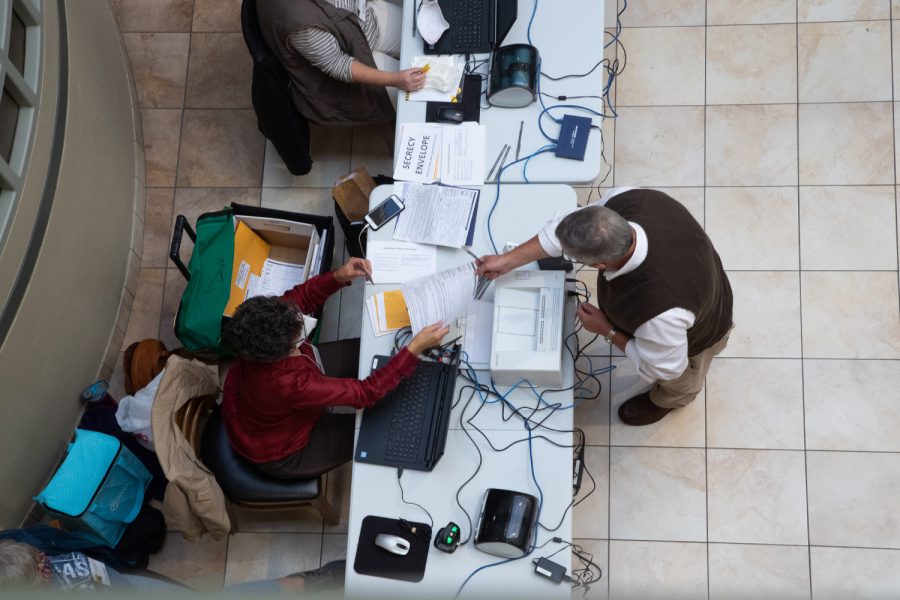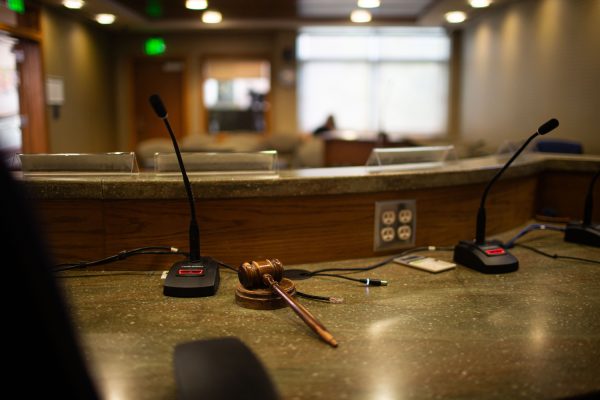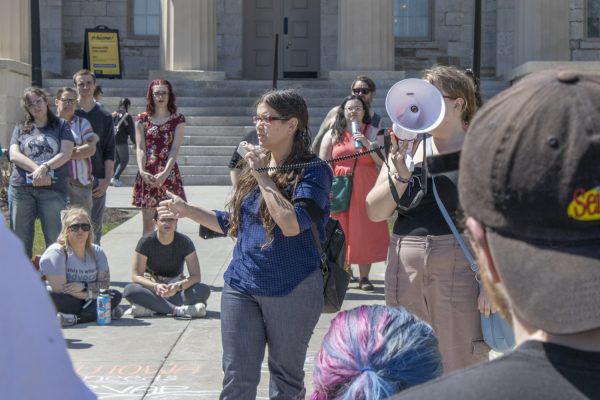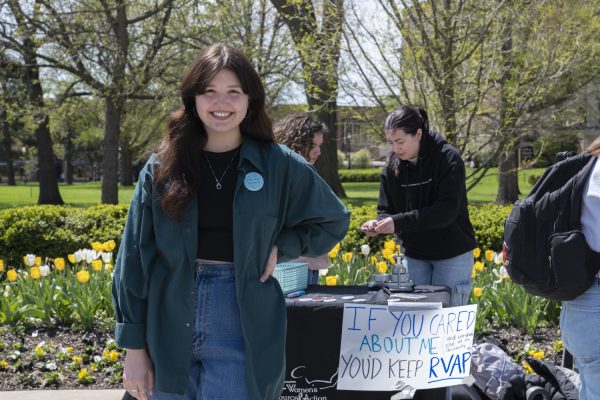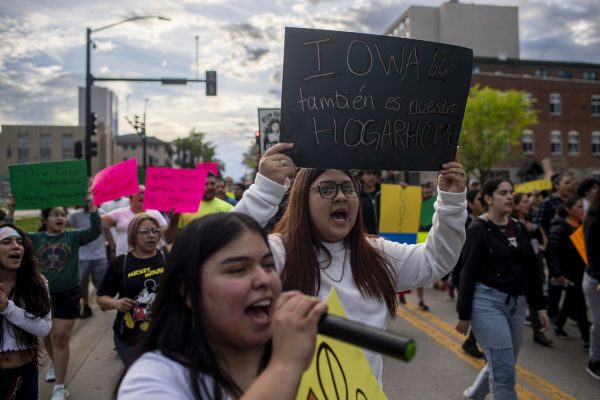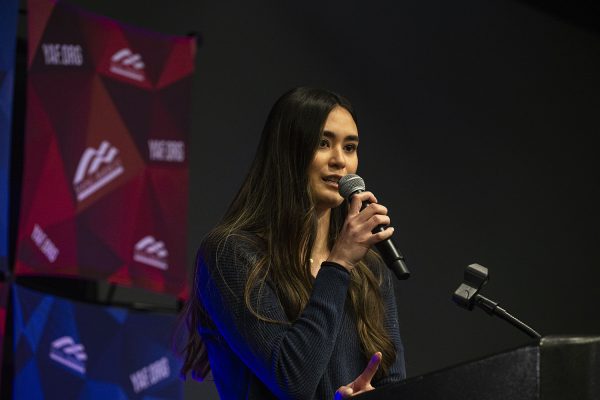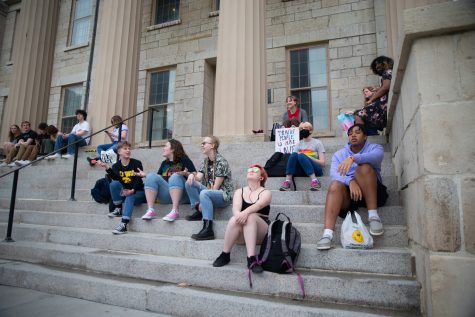New voting rules cause absentee ballot headaches for auditors
With nine fewer days for early voting, Johnson County auditor’s office staff say there’s less time to get issues sorted out before election day.
City Councilor Janice Weiner accepts a ballet from a voter during early voting polls at the Old Capitol Mall on Oct. 26, 2021. The opportunity to vote early and in person started on Oct. 13, 2021.
October 26, 2021
New deadlines for absentee ballots are creating hang-ups for some counties, including Johnson County.
A law signed by Iowa Gov. Kim Reynolds in March shortened Iowa’s early voting period from 29 to 20 days.
Absentee ballots can be mailed by a county auditor’s office on the first day of early voting, 20 days ahead of an election.
Johnson County Elections Technician John Deeth said the new deadlines leave little time to correct problems like a mail delivery issue or a forgotten signature on a ballot.
“If we can mail ballots earlier, then problems turn up earlier, and then there’s more time to fix them,” Deeth said. “If you’re not finding out that somebody’s got a mail delivery problem until 11, 12 days before the election, that doesn’t leave much time to get the problem fixed, if that voter decides to fix it in the mail.”
City-school elections in Iowa City will take place on Nov. 2.
Deeth said most people can correct issues in person at the auditor’s office, but for those who are home-bound or living far away, that isn’t an option.
“Twenty days is just plain not enough time to deal with two round trips in the mail,” Deeth said.
The new voter laws moved up the cutoff voters have to request an absentee ballot by four days, from 11 days before an election to 15.
RELATED: Breaking down Iowa’s newest election laws
Deeth said around 40 absentee ballot requests arrived after the deadline in Johnson County.
“Most of those people were local, but a couple of them were from a long distance out of town, and for the people who are a long distance out of town, they’re basically just out of luck,” he said.
Johnson County had fewer overall mail-in ballot requests than for the last city-school election in 2019. This year, the county had 813 domestic mail ballot requests, down from 1060 in 2019, Deeth said.
In Linn County, auditor Joel Miller said that 257 absentee ballot requests arrived after the deadline.
Miller, a Democrat running for Secretary of State, said that the new deadlines have cut people off from the voting by mail process.
“While we’ve had a lot of people that have voted early, it’s going to hurt those singular people who are bedridden, home-bound, shut-in, that aren’t going to be able to vote in this election and we aren’t going to be able to get a ballot to them,” Miller said. “If they can’t drive up to our curbside voting, they will not vote in this election.”
Kevin Hall, communications director for Iowa Secretary of State Paul Pate, wrote in an email to The Daily Iowan that county auditors are not required to report data about requests that come in after the deadline to the Secretary of State, but are required by law to notify voters whose ballot requests are too late.
“As we do with every election, the Secretary of State’s Office is conducting an extensive voter outreach effort to help voters understand the dates, deadlines, and rules,” Hall wrote. “This year, we’ve partnered with Iowa’s college football programs to raise awareness of the upcoming city-school election, mailed postcards to 50,000 Iowans who are eligible to vote but not registered, and launched voter registration drives in Iowa high schools.”
Other Eastern Iowa counties, which are not as populated as Linn and Johnson County, have not encountered as many issues with the new voting laws.
Sue Meeks, deputy auditor for elections administration in Washington County, said that the auditor’s office received one absentee ballot request after the deadline.
“I don’t think it’s changed too much from previous elections, that I can tell,” Meeks said. “There’s always some that don’t seem to realize that the rules have changed, even though you send publications out, but I thought we would probably receive more requests past the deadline than we did.”
Muscatine County Auditor Tibe Vander Linden said the office has seen a few requests come in too late.
“I can’t say we’ve had complaints,” Vander Linden said. “We’ve had a nice steady amount of absentee ballots go out as well as returned, and steady show up at the counter.”



